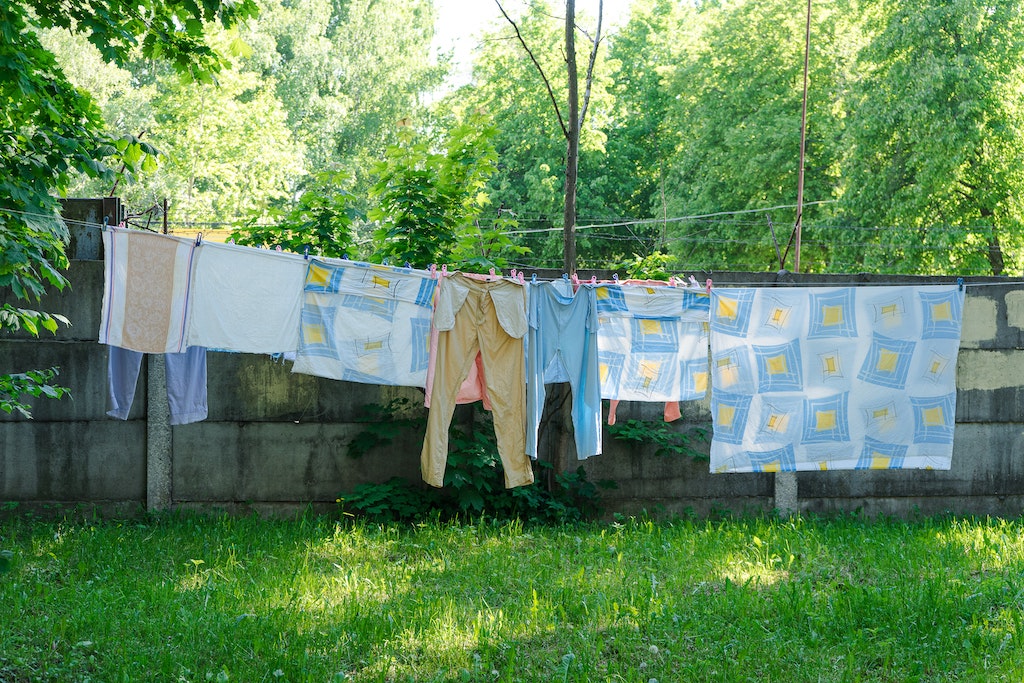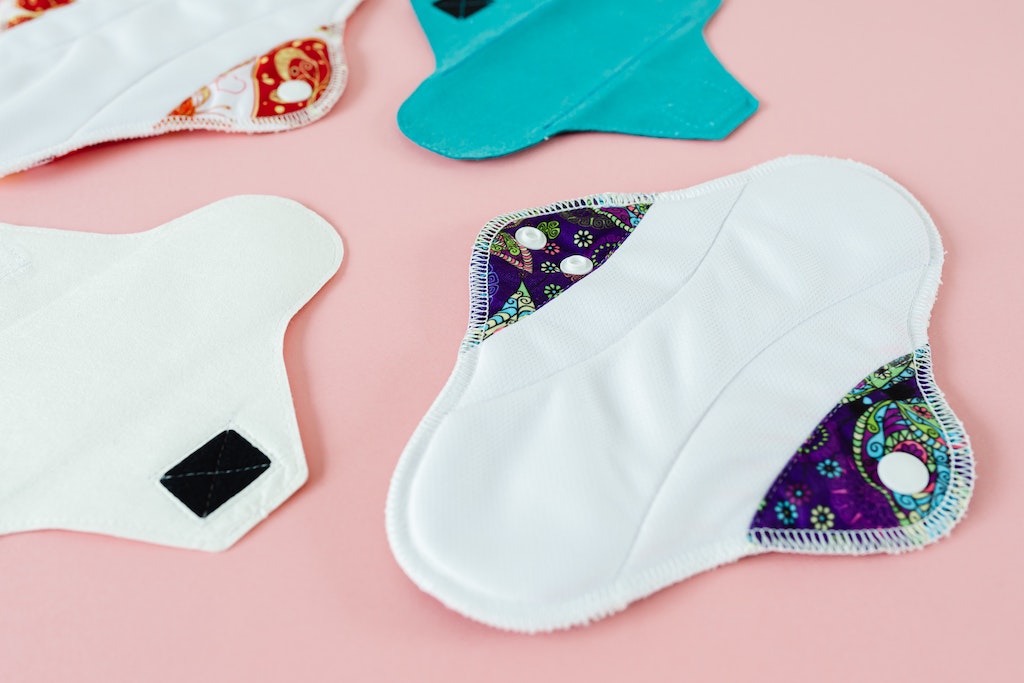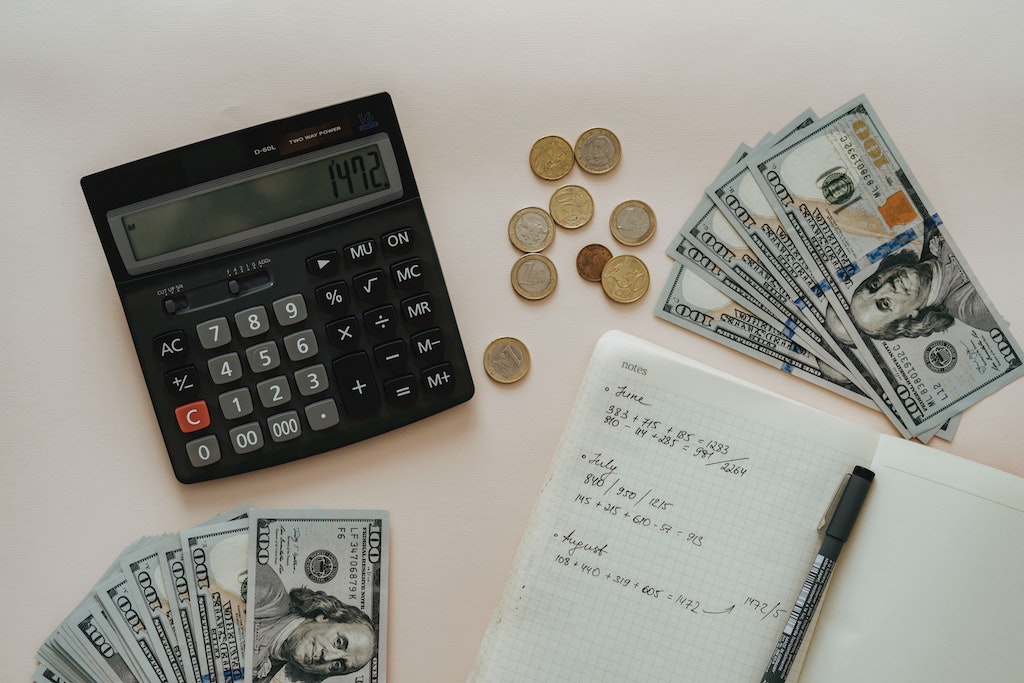100+ Smart Ways to Save Money and Reduce Waste in Your Everyday Life

Hey there, money-savvy friends! Are you tired of constantly struggling to save money and live sustainably? Well, you’re in luck because I’ve got a blog post that’s going to blow your mind! In this blog post I’ve compiled a list of tips and tricks that will help you save money on everything from your home and utilities to your personal care items and fashion choices.
If you’re looking to cut back on your expenses and do your part for the environment, this is the post for you. I’ve broken down my tips into different categories, including food and drinks, transportation, entertainment and education, finance and banking, household items, and more. So whether you’re a broke college student or a working professional looking to save some extra cash, there’s something for everyone in this post.
From using a budgeting app to negotiating fees with your bank or credit card company, to making your own meals and shopping at discount stores, I’ve got you covered. Plus, I’ve included tips on how to reduce waste and live a more sustainable lifestyle, such as using reusable water bottles, homemade personal care products plus the recipes, and reducing water and electricity usage.
So grab a cup of coffee, sit back, and get ready to learn how to save money and reduce waste in your everyday life. Trust me, your wallet (and the planet) will thank you for it!
Home and Utilities

Saving money on home and utilities can be a game-changer, my friend! Think about it, not only do you free up cash for the things you truly love, like a new pair of shoes or a night out with your pals, but you can also plan for your future financial goals, like owning a home or taking that dream vacation. Plus, who doesn’t love the feeling of being prepared for unexpected expenses or emergencies? It’s like having a superpower! And the best part? Saving money on home and utility expenses is not only good for your wallet, but it’s also great for the planet. By reducing energy and resource consumption, you’re doing your part to create a more sustainable future. So let’s get started on these money-saving tips for home and utilities, and let’s do it with the planet in mind!
Turn off lights and appliances when not in use: Save energy and money by turning off lights and unplugging appliances when not in use.
Use energy-efficient light bulbs: Replace old incandescent light bulbs with energy-efficient LED or CFL bulbs to save on electricity bills.
Adjust thermostat settings: Set your thermostat to an appropriate temperature for the season to save on heating and cooling costs. Wear a sweater when it’s cold, open the windows when it’s hot.
Seal gaps and cracks in doors and windows: Use weather stripping and caulking to seal air leaks around doors and windows to improve energy efficiency.
Insulate your home: Proper insulation can prevent air leaks and reduce heating and cooling costs.
Use a programmable thermostat: A programmable thermostat can automatically adjust the temperature when you’re away to save on energy bills. We like using the Nest.
Take shorter showers: Save on water and energy bills by taking shorter showers.
Fix leaking faucets and toilets: Repair any leaks in your plumbing system to prevent water waste and high water bills.
Use a water-efficient toilet: Upgrade to a water-efficient toilet to save on water bills.
Use a water-efficient dishwasher: Use a dishwasher with a high energy star rating and water-efficient features to save on water and energy bills.
Use a water-efficient washing machine: Use a washing machine with a high energy star rating and water-efficient features to save on water and energy bills.
Use a clothesline or drying rack instead of a dryer: Air-drying clothes is a great way to save on electricity bills and reduce environmental impact.
Use a slow cooker or pressure cooker to save on energy bills and cooking time: Slow cookers and pressure cookers are energy-efficient and can save you time in the kitchen.
Use a water-efficient showerhead: Upgrade to a water-efficient showerhead to save on water and energy bills.
Use a rain barrel to collect and reuse rainwater for gardening: Collecting rainwater is an eco-friendly way to water your plants and save on water bills.
Transportation

Let’s talk about how you can save some cash on your transportation expenses. Sure, it can be tempting to hop in your car and drive everywhere, but have you considered the alternatives? By taking advantage of public transportation, carpooling with friends, biking or even walking, you can save money on gas and maintenance costs, and also get some exercise in the process! Plus, reducing the amount of driving you do can help decrease your carbon footprint and contribute to a more sustainable future. Oh, and don’t forget to plan your errands in advance and take advantage of fuel rewards programs to save even more on gas expenses. So, let’s hit the road towards financial savings and a greener lifestyle!
Use a bike or walk instead of driving for short trips: Save on gas and parking expenses by biking or walking for short trips.
Walk or bike to nearby destinations instead of driving: Reduce your carbon footprint and improve your health by walking or biking to nearby destinations.
Use public transportation instead of driving to work or other destinations: Save on gas and parking expenses by using public transportation for work or other destinations.
Carpool with coworkers or friends to save on gas and vehicle wear and tear: Sharing a ride with coworkers or friends can save on expenses and reduce environmental impact.
Use ride-sharing services instead of owning a car: Using ride-sharing services can save on vehicle maintenance, gas, and parking expenses. Make sure you calculate what’s cheaper in your area.
Use a bike-sharing program instead of owning a bike: Renting a bike from a bike-sharing program can save on expenses and reduce the need for bike storage.
Keep up with regular vehicle maintenance to improve fuel efficiency and extend the lifespan of your vehicle: Regular vehicle maintenance can improve fuel efficiency and reduce the need for costly repairs.
Use a fuel-efficient vehicle or a hybrid/electric car: Investing in a fuel-efficient or hybrid/electric car can save on gas expenses and reduce environmental impact.
Plan your errands in advance to minimize driving time and distance: Planning your errands in advance can reduce driving time and gas expenses.
Use a fuel rewards program to save on gas expenses: Joining a fuel rewards program can save on gas expenses over time.
Use a parking app to find the cheapest parking in your area: Finding cheaper parking options can reduce parking expenses over time.
Food and Drink

Saving money on food and drinks can have a significant impact on your overall financial health. By finding ways to cut costs in this area, you can stretch your budget further, save for other financial goals, and reduce the amount of food waste you generate. Making your own meals, buying in-season produce, and shopping at discount grocery stores are just a few ways to save money on food. Similarly, using a reusable water bottle, making your own snacks, and buying items in bulk are just a few ways to save money on drinks. These small changes can add up over time and help you save money without sacrificing the quality of your meals or drinks.
Make your own meals: Cooking your own meals at home can save on eating out expenses and reduce food waste.
Buy in-season produce: In-season produce is often cheaper and fresher than out-of-season produce.
Make your own beverages: Making your own beverages like iced tea or lemonade at home can be cheaper than buying bottled drinks or going to cafes.
Shop at farmers markets: Farmers markets often offer fresh, locally grown produce at affordable prices.
Take advantage of happy hour specials: Going out to eat or drink during happy hour can often mean discounted prices on food and drinks. Also check Groupon for deals on restaurants.
Shop at discount grocery stores: Shopping at discount grocery stores can save on food expenses. Compare prices and do your research on home-brand products.
Use a reusable water bottle: Using a reusable water bottle can save on bottled water expenses and reduce plastic waste.
Use a refillable coffee cup: Using a refillable coffee cup can save on coffee expenses and reduce waste from disposable cups.
Use a reusable lunchbox or container: Using a reusable lunchbox or container can save on expenses from disposable bags or containers and reduce waste.
Make your own snacks: Making your own snacks at home can save on expenses from buying pre-packaged snacks.
Buy items in bulk and split the cost with friends or family: Buying in bulk can save on expenses over time, and splitting the cost with others can make it more affordable upfront.
Household Items

Now let’s discuss saving some cash on household items! Living a frugal lifestyle doesn’t have to be boring. It’s all about finding ways to reuse and repurpose items, and getting creative with your cleaning products. Plus, shopping smart for deals and discounts can seriously cut down on your spending. And the best part? By reducing your consumption of household items, you’re also doing your part to help the planet. So next time you’re tempted to toss something in the trash, think about how you can repurpose it or make it last longer. Together, we can create a more sustainable way of living.
Use cloth napkins instead of paper ones: Using cloth napkins can save on expenses from buying paper ones and reduce paper waste. To use cloth napkins, simply wash them after each use and reuse them for your next meal.
Use a reusable straw instead of buying disposable ones: Using a reusable straw can save on expenses from buying disposable ones and reduce plastic waste. To use a reusable straw, bring it with you when you go out to eat or drink and use it instead of the disposable ones provided.
Use a reusable coffee filter instead of buying disposable ones: Using a reusable coffee filter can save on expenses from buying disposable ones and reduce paper waste. To use a reusable coffee filter, simply rinse it after each use and reuse it for your next pot of coffee.
Use rechargeable batteries instead of disposable ones: Using rechargeable batteries can save on expenses from buying disposable ones and reduce battery waste.
Download a shopping list app instead of writing on new notepads: Using a shopping list app can save on expenses from buying new notepads and reduce paper waste. I like using Whisk or Bring shopping list.
Use a reusable cloth diaper instead of buying disposable ones: Using a reusable cloth diaper can save on expenses from buying disposable ones and reduce diaper waste. To use a reusable cloth diaper, wash it after each use and reuse it for your baby’s next diaper change.
Use a reusable menstrual product instead of buying disposable ones: Using a reusable menstrual product can save on expenses from buying disposable ones and reduce menstrual waste. To use a reusable menstrual product, follow the product’s instructions for cleaning and reuse. Or consider free-flowing when you’re at home.
Use a reusable makeup remover pad instead of buying disposable ones: Using a reusable makeup remover pad can save on expenses from buying disposable ones and reduce cotton pad waste. To use a reusable makeup remover pad, wash it after each use and reuse it for your next makeup removal.
Use a reusable cloth handkerchief instead of buying disposable tissues: Using a reusable cloth handkerchief can save on expenses from buying disposable tissues and reduce paper waste.
Use a reusable dishcloth instead of buying disposable ones: Using a reusable dishcloth can save on expenses from buying disposable ones and reduce paper waste.
Make your own laundry detergent: Learn how to make your own natural cleaning products with this easy and affordable recipe from Happiest Camper
Make your own homemade dryer sheets: Keep your clothes smelling fresh and save money by making your own DIY dryer sheets with this simple recipe from Happiest Camper.
Make your own all-natural cleaner: Create a safer and healthier living environment by making your own all-natural cleaner with this simple recipe from The Homestead Challenge.
Make your own deodorizer: Making a natural lemon and rosemary deodorizer couldn’t be easier and budget-friendly! This scent from Plant Based on a Budget will make your home smell like wonderful!
Make your own kitchen cleaner: Need an inexpensive but effective all purpose household cleaner? You’ll love this all -natural DIY pine needle vinegar from An Off Grid Life made with foraged pine needles!
Make your own all-purpose cleaner: This DIY all purpose cleaner without vinegar is made with natural, effective cleaning ingredients that won’t stink up your home! The recipe from The Home Intent is easy, cost-effective and it works.
Make your own homemade toilet bowl cleaner tablets: These Homemade Toilet Bowl Cleaner Tablets from The Frugal Navy Wife are another item we started making to save money and I’m sharing them with you!
Make your own glass cleaner: You will love this better than Windex DIY Glass Cleaner Recipe by The Frugal Navy Wife. Mere minutes to mix and with items already in your home. 2 Simple steps.
Personal Care

Saving money on personal care items is not only a great way to reduce your expenses, but also a great opportunity to know what ingredients are being used in your products. By making your own personal care items using DIY recipes, you have the freedom to choose and control the quality of the ingredients that go into them. This way, you can avoid harsh chemicals, synthetic fragrances, and other harmful additives that are commonly found in commercial personal care products. With the recipes provided, you can create your own natural, safe and effective personal care items that will benefit both your health and your wallet.
Cut your own hair: Cutting your own hair can save you a lot of money on salon visits. With a little bit of practice and some basic tools, you can give yourself a simple haircut at home. There are also plenty of online tutorials and resources to help you learn new techniques and styles. Just make sure to invest in a good pair of scissors and take your time to avoid any mistakes.
Make your own DIY body butter: Moisturize your dry and irritated skin with this nourishing DIY body butter recipe from Sustain My Craft Habit. Save money while pampering your skin with natural ingredients like shea butter, coconut oil, and essential oils.
Make your own shower steamers: There’s no need for expensive spa days when you can treat yourself daily with these rejuvenating DIY shower steamers from Sustain My Craft Habit. Made with soothing lime and eucalyptus essential oils, they’re the perfect, refreshing way to start the day!
Make your own tallow balm: Tallow balm from The Home Intent is what your skin has been waiting for! It takes only a few natural, nourishing ingredients that will leave your skin hydrated and glowing. Plus, it’s SO easy to make!
Make your own bath bombs: Luxurious and fragrant, make DIY bath bombs from Inspired by Charm for any mood or season. This homemade bath bomb recipe never fails, and it’s super-easy to change it up with different scents.
Make your own all-natural facial cleanser: Save money and take care of your skin with this DIY all-natural facial cleanser recipe from Mixed Kreations.
Make your own foaming soap: Make your own foaming soap with only 2 ingredients and save money with this simple recipe from Forging Magic.
Make your own sugar scrub: Scrub and moisturize with DIY exfoliating sugar scrub cubes from Fit As A Mama Bear! These DIY sugar scrubs come in individual cubes and are made with soap, sugar, and oil. Meaning, they cleanse, remove dirt and leave your legs and body silky smooth all at once.
Make your own lip scrub: A five-ingredient DIY lip scrub from Fit As A Mama Bear to help nourish your lips and prevent cracking. This DIY sugar scrub is perfect to whip up in colder months to give your lips some life
Note: Some of the homemade products mentioned above require ingredients that need to be purchased. However, they are typically cheaper and more eco-friendly in the long run compared to buying commercial products.
Entertainment and Education

Did you know you can have fun and learn at the same time without breaking the bank? It’s true! There are plenty of free or low-cost events in your community that you can attend. You can also check out your local library for books and magazines, and save some money by using streaming services instead of paying for cable TV. And if you’re interested in continuing your education, there are tons of free online courses out there waiting for you to enroll. So why not take advantage of these opportunities and learn something new while having fun?
Use a library instead of buying books or magazines: Libraries are a great resource for borrowing books, magazines, and other media, often for free.
Use a streaming service instead of paying for cable TV: Streaming services like Netflix, Hulu, and Amazon Prime offer a wide variety of entertainment options at a fraction of the cost of cable TV. If you are a member of your local library, you can ask if they offer Kanopy. Kanopy is a free streaming service.
Take advantage of free online courses instead of paying for education: Websites such as Coursera and edX offer free online courses from top universities around the world, allowing you to expand your knowledge without breaking the bank. And don’t forget about YouTube.
Join a book club: Joining a book club can be a great way to meet new people and read interesting books while engaging in lively discussions. Sometimes they also offer book swap events, which could help save money.
Listen to podcasts: Podcasts offer a variety of free and informative content on a range of topics, making them a great way to stay entertained and informed.
Join a free exercise group: Many communities offer free exercise classes, such as yoga or Zumba, in local parks or community centers.
Visit your local park or beach: Spend some time in nature by visiting your local park or beach, and enjoy activities like hiking, swimming, or picnicking.
Take advantage of student discounts: If you are a student, take advantage of student discounts at museums, theaters, and other entertainment venues.
Attend free concerts: Many cities and towns offer free concerts in parks or other public spaces, providing an opportunity to enjoy live music without spending money.
Take a free online course: There are many free online courses available on a variety of topics, allowing you to learn and improve your skills from the comfort of your own home.
Visit museums: Museums offer a wealth of knowledge and art to appreciate, and many offer free or low-cost admission. Check for student discounts or annual free attendance days.
Host a game or movie night at home instead of going out: Host a fun game or movie night at home with friends and family as a cost-effective way to have fun and socialize. Ask everyone to bring their own drinks and a shareable snack. If you are looking for budget in-home date night ideas check out my blog post 25 Budget-friendly In-home Date Night Ideas For Parents.
Listen to audiobooks: Audiobooks offer a convenient way to enjoy literature and stories while multitasking or on the go. With a library membership you can listen to a wide variety of audiobooks.
Home Maintenance

Did you know that maintaining your home doesn’t have to be expensive? With a few simple tricks, you can save money and keep your home in great shape! Whether it’s fixing leaks, unclogging drains, or replacing light bulbs, there are plenty of DIY hacks to help you save a ton of cash. So, grab your toolbox and get ready to tackle some home maintenance projects that won’t break the bank!
Learn to mend and repair clothes instead of buying new ones: Save money and reduce waste by learning how to mend and repair clothes rather than buying new ones.
Fix items around the house instead of replacing them: Instead of throwing out broken or damaged items, try fixing them yourself. This can save you money and reduce waste. Plus, it can be a fun and satisfying DIY project.
Replace air filters regularly to improve air quality and energy efficiency: Replace air filters regularly to improve air quality and save energy. Regular filter changes help to reduce the amount of dust, allergens, and other particles in the air. It also helps your HVAC system run more efficiently, which can save you money on your energy bills.
Use weather stripping and caulk to seal air leaks around doors and windows: Reduce your energy bills by sealing air leaks around your windows and doors with weather stripping and caulk. This simple step can also help to make your home more comfortable by keeping out drafts.
Insulate your home to improve energy efficiency: Insulating your home is a smart way to save money on energy bills. Proper insulation can help keep your home cool in the summer and warm in the winter, making your HVAC system more efficient and reducing your overall energy consumption.
Use LED light bulbs to save on electricity bills and reduce environmental impact: LED light bulbs are energy-efficient and last longer than traditional incandescent bulbs. By switching to LED bulbs, you can save on electricity bills and reduce your environmental impact.
Fix minor repairs around the house yourself instead of hiring a professional: Save money and gain DIY skills by fixing minor repairs around your house instead of paying for a professional.
Use a draft stopper to prevent drafts from entering your home: Use a draft stopper to keep your home comfortable and prevent drafts from entering, which can save you money on your heating and cooling bills.
Clean gutters regularly to prevent water damage and costly repairs: Regularly cleaning your gutters can help prevent water damage and costly repairs by ensuring that water flows away from your home instead of pooling around its foundation.
Use a compost bin to create your own fertilizer for your garden: Make your own fertilizer for your garden by using a compost bin. This will help reduce food waste and save money on expensive store-bought fertilizers.
Shopping and Fashion

Saving some cash on shopping and fashion is a no-brainer. Why spend a ton of money on something when you can get the same thing for cheaper? Plus, who really cares if you wear the same outfit twice? As long as you look good and feel confident, that’s all that matters!
Make a list before going shopping: Make a list before you go shopping to stay on track and avoid making impulse purchases that can bust your budget.
Wait for sales or discounts before making purchases: Score great deals and save some cash by waiting for sales or discounts before making purchases. Keep an eye out for seasonal sales or holiday promotions to snag the items you want at a lower price.
Buy secondhand items instead of new ones: Consider buying used items instead of new ones to save money and reduce waste. Many thrift stores and online marketplaces offer affordable and gently used items that are still in great condition.
Rent clothes instead of buying them: Save money and reduce waste by renting clothes instead of buying them. This allows you to wear trendy clothes without having to spend a lot of money or contribute to the fast fashion industry’s negative impact on the environment.
Host a clothing swap with friends or family: Host a clothing swap with friends or family: Trade clothes you no longer want for new-to-you items, without spending any money.
Use a rewards program to earn discounts or cashback: Use a rewards program to earn discounts or cashback on your purchases. Many retailers offer rewards programs that allow you to earn points or cashback on your purchases, which can then be redeemed for discounts or rewards. By taking advantage of these programs, you can save money on your shopping over time.
Use coupons or promo codes when shopping online: Use coupons or promo codes when shopping online to save money on purchases. Many retailers offer discounts and special deals for customers who use these codes at checkout, so it’s always worth checking for them before making a purchase. You can often find these codes through a simple Google search or by signing up for a retailer’s email newsletter.
Use a price comparison tool when shopping online: When shopping online, using a price comparison tool can help you find the best deals and save money. These tools compare prices from different retailers and show you where you can buy the same item for less. By using them, you can make informed purchasing decisions and avoid overpaying for items.
Buy generic or store-brand items instead of name-brand ones: Save money by buying generic or store-brand items instead of name-brand ones. Often, generic products have similar quality and ingredients as the brand-name versions, but at a lower price point.
Finance and Banking

You really gotta follow financing and banking tips if you wanna save some serious cash. It’s like a game, but instead of playing to win, you’re playing to keep your hard-earned money. You can learn some easy tricks to avoid unnecessary fees, get better interest rates, and just generally make your money work harder for you. Trust me, it’s worth the effort!
Set a budget and stick to it: Setting a budget and sticking to it is a great way to manage your money effectively. By creating a plan for your spending, you can avoid overspending and save money for things that are important to you. Stick to your budget by tracking your expenses and adjusting your spending as needed.
Use a budgeting app or tool to track spending: Using a budgeting app or tool is a great way to keep track of your spending. By logging your expenses, you can see where your money is going and identify areas where you can cut back. This can help you stick to a budget and save money in the long run. Check out my blog post Money-saving Meal Planning Tips to Cut Down on Food Waste for more specific tips on how to save money when doing groceries.
Use a cash-back credit card and pay off the balance in full each month: Using a cash-back credit card and paying off the balance in full each month can be a smart way to save money. With a cash-back card, you can earn rewards for your purchases, and as long as you pay off the balance in full, you won’t accrue any interest charges. This can be a great way to make your everyday spending work for you, as long as you stay disciplined and avoid carrying a balance.
Use online banking to avoid ATM fees: Using online banking can help you avoid ATM fees. By checking your account balance and conducting transactions online, you can reduce the need to withdraw cash from ATMs and potentially incur fees. This can help you save money in the long run and keep more of your hard-earned cash in your pocket.
Use a high-interest savings account to earn more interest on savings: Using a high-interest savings account can help you earn more interest on your savings. These accounts typically offer higher interest rates than traditional savings accounts, allowing your money to grow faster. By choosing a high-interest savings account, you can maximize your savings and earn more money over time.
Negotiate fees or interest rates with banks or credit card companies: Negotiating fees or interest rates with banks or credit card companies can lead to lower costs and potentially save you money in the long run. It’s important to be prepared and have a solid understanding of your financial situation before entering into negotiations.
Use a no-fee checking account: A no-fee checking account is a type of bank account that does not charge any monthly maintenance or transaction fees. By using a no-fee checking account, you can save money on banking fees and keep more of your money in your pocket.
Hey there! I really hope these 100+ money-saving tips have given you some new ideas on how to be eco-friendly and live a little more frugally. With so many easy ways to save money, it’s totally doable to make some small changes in your life that can add up to big savings over time. So go ahead and try out some of these tips, and see how much you can save!
Reading through this article was quite helpful for me. I am guilty of wasting money and at times not considering my impact on the environment. I plan to incorporate many of the tips in this article to save money and reduce waste!
I am so glad to hear you found the blog post helpful! Thanks for commenting!
So many great ideas! Some I already do, such as energy efficiency in the home, meals are only cooked at home, etc. But we can also get better at a few of these as a family.
I am glad you still found a few things that might help you and your family! Thanks for commenting.
These are all such great ideas. I’ve been wanting to try reusable paper towels/pads, but have not made the switch yet. I love using reward programs and cash back too!
I just use terry cloth towels for my kitchen and wash them every week. So handy!
What a fantastic post. Indeed we all to think more about our environment, and save money for something meaningful. The problem is – time. We are all trapped by this time-consuming beast thinking that we do not have enough time for everything. When the question should be just the opposite – do we actually need that “everything” in our lives…
I agree with you that we are trapped in a time consuming beast, but don’t let it overwhelm you. Once you find your way, it might not be time-consuming at all!
The best way to save money on your weekly shop is not to buy stuff you end up throwing out. Always shop smart.
Definitely! And not to shop hungry – I’ve learned, haha!
These are some really expert and smart tips to save money at home. Repurposing old items is one great way too.
Thank you for your comment!
Wow, what a fantastic list of 100 practical ways to save money and reduce waste in our daily lives! These tips are easy to implement and can make a big difference in our wallets and the environment.
Love this post! And it’s especially helpful at the moment when everyone is tightening their belts! Even the likes of my husband and I who have no children are feeling the pinch.
Wow….I must commend you for compiling all these ways of saving money! I love ride-sharing so much. We may not all get where we need to be on time but we surely save on fuel and the gas emissions.
That is awesome! Thanks for your comment.
A big one for me was using reusable coffee mugs and making coffee at home. I have saved literally thousands!